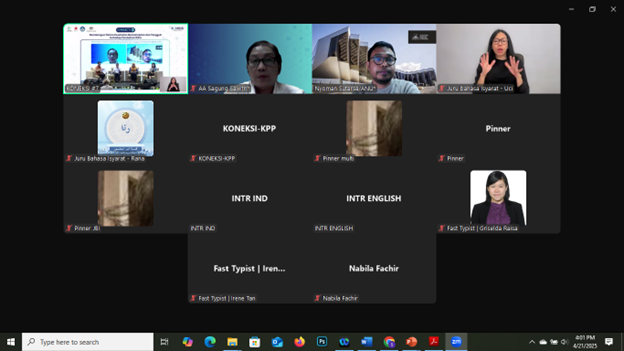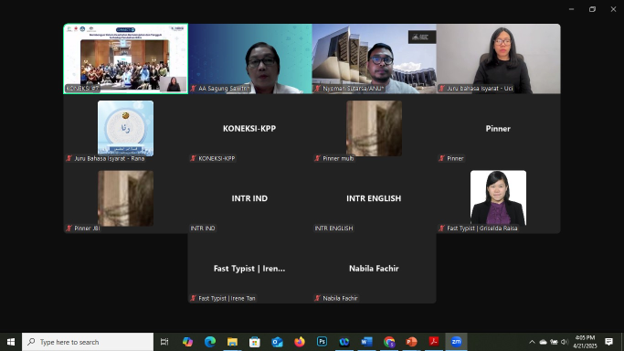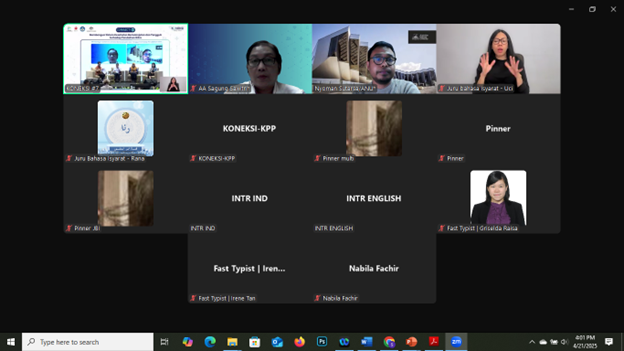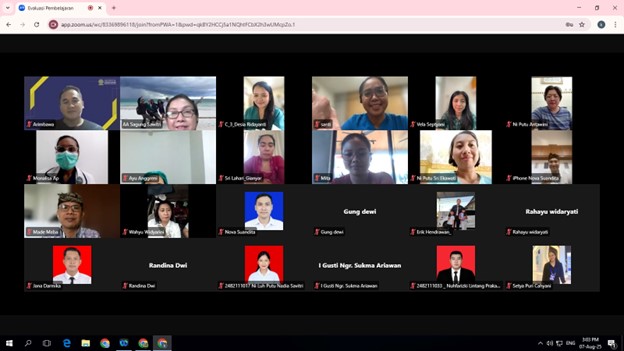Strengthening Public Health in Indonesia Through Climate Resilience: A Collaborative Research Presentation
In an effort to raise awareness among policymakers and the public about the threat of climate change to public health status in Indonesia, KONEKSI organized its seventh regular discussion (CONNECT!#7) on April 21, 2025. As one of KONEKSI's research partners, Dr. I Nyoman Sutarsa from the Australian National University and Dr. dr. Anak Agung Sagung Sawitri from Udayana University had the opportunity to present the results of their collaborative research titled “Climate Resilient Primary Health Care (PHC) and Financing Systems in Indonesia: A Participatory Action Research (PAR)”. This study highlights the crucial role of Puskesmas (community health centers) in adapting to climate change, while also pointing out that their capacity still requires significant improvement.
Climate change is now a real threat to public health in Indonesia, bringing about various health impacts such as heatstroke, respiratory issues, and the spread of infectious diseases like dengue fever and malaria. Puskesmas, as the frontline of primary healthcare services, faces tremendous challenges in managing these increasingly complex health impacts, especially considering the limitations in resources and infrastructure.
Alongside other speakers, including Dr. Anas Ma’ruf, MKM (Head of the Health Resilience Policy Center at the Indonesian Ministry of Health), Ganendra Awang Kristandya (Director of Global Health Strategy for Indonesia & ASEAN), and Diah Lenggogeni, ST, MSc (Director of Public Health and Nutrition at Bappenas), the discussion covered key issues and government strategies in addressing the findings of this study. The full details of the discussion are available on the KONEKSI website: https://koneksi-kpp.id/id/mendukung-penyedia-layanan-kesehatan-masyarakat-indonesia-dalam-menghadapi-tantangan-iklim
For the Master of Public Health (MPH) Program at Udayana University, such discussions represent an important opportunity to communicate research findings that can influence future public health policies, ultimately leading to better public health outcomes in Indonesia. In addition to the direct impact on public health, discussions like this also offer benefits in strengthening collaboration between institutions and expanding networks among academia, government, and the private sector. By sharing research findings, stakeholders can exchange knowledge and experiences, potentially opening up opportunities for joint initiatives and the development of more integrated policies. This dialogue also fosters further research and innovation in addressing climate change challenges, while encouraging the formulation of policies that are more responsive to emerging health issues. Furthermore, forums like this help build stronger connections between academic research and field practices, enriching perspectives in the development of more effective, evidence-based public health policies.






MEDICAL FACULTY